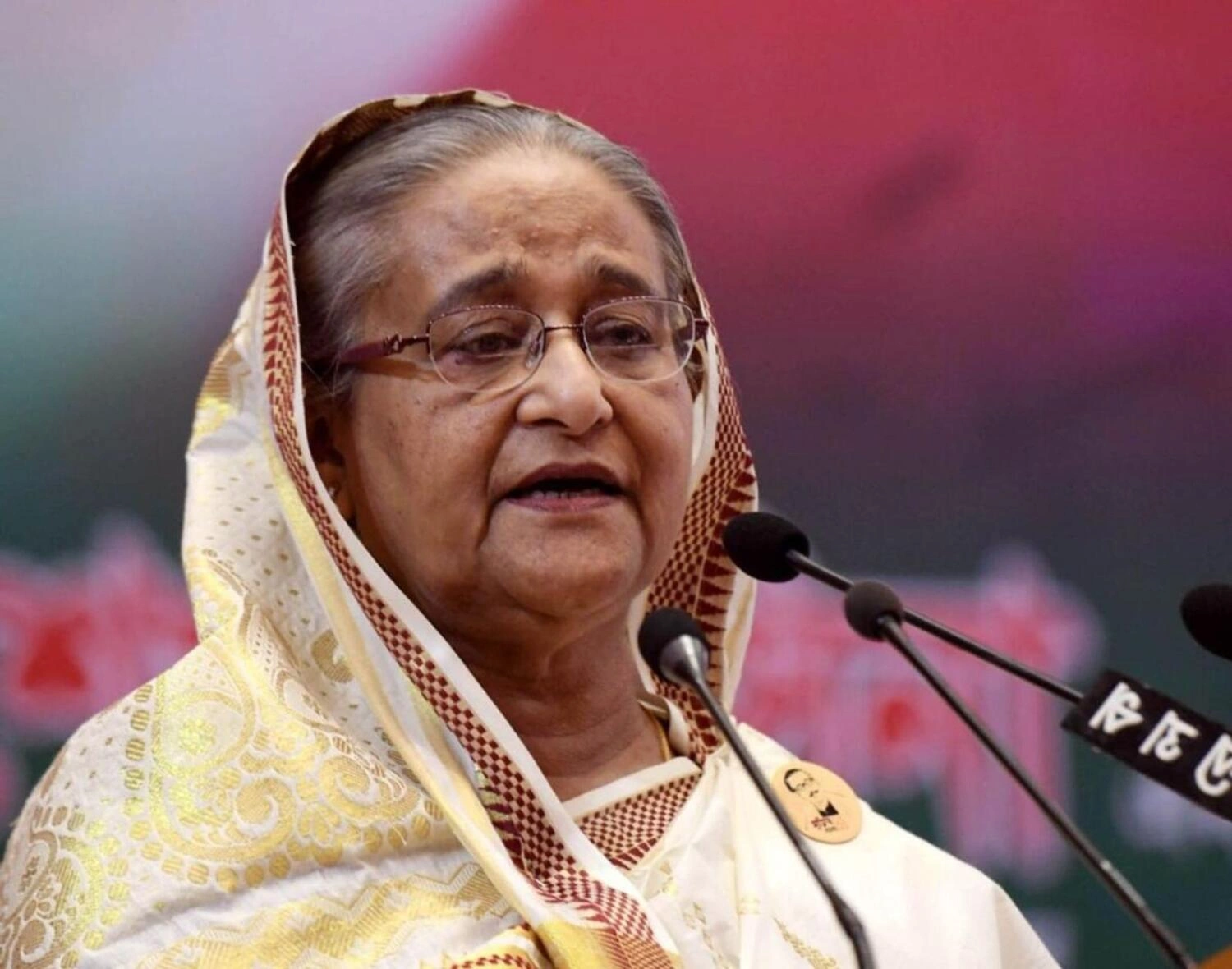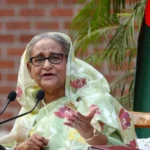Bangladesh has officially requested India to return former Prime Minister Sheikh Hasina, who fled to India on August 5 following her removal from power during a student-led movement.
The formal request, known as a “note verbale,” was sent to the Indian government, confirmed Bangladesh’s Interim Government’s Foreign Affairs Adviser, Touhid Hossain. “We have sent a note verbale to India requesting to send Sheikh Hasina back,” Hossain shared with reporters, according to local media.
Background of Hasina’s Ouster
Sheikh Hasina, 76, was forced to flee the country after weeks of protests and violent clashes left over 600 people dead. The protests, led by students, culminated in her removal from office. Following her departure, an interim government was established under Nobel Laureate Muhammad Yunus.
On December 9, Sheikh Hasina accused Chief Adviser Muhammad Yunus of orchestrating the protests to unseat her. She described the protests as a “meticulously designed conspiracy” during a virtual meeting with the United Kingdom Awami League. Despite fulfilling the protesters’ demands, she alleged that unrest continued as part of a calculated plan to overthrow her government.
Hasina’s Claims Against Muhammad Yunus
Hasina accused Yunus of being the “mastermind” behind the movement, saying, “Yunus himself admitted that the protests were not initiated by students but were a deliberate effort to remove me. All demands were met, yet protests persisted. This was a calculated conspiracy.”
She also criticized the interim government, calling it “fascist” and claiming it was depriving the people of their rights. “Today, under this government, Bangladesh is burning. The people are deprived, and the country is being destroyed,” she added.
Allegations of Rights Violations
Sheikh Hasina highlighted the arrest of former ISKCON priest Chinmoy Krishna Das on sedition charges as an example of the lack of law and order in Bangladesh.
“They arrested Chinmoy Krishna Das and denied him legal representation. What kind of justice is this? This proves there’s no rule of law in Bangladesh,” she stated.
Ongoing Tensions and International Attention
The situation in Bangladesh remains tense. Hasina’s criticism of the interim government and her allegations of rights violations have drawn international concern. The global community is closely monitoring the developments, particularly regarding the implications of her potential extradition from India.





